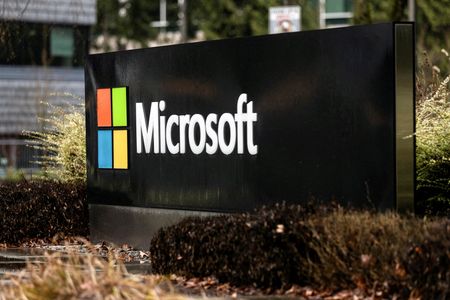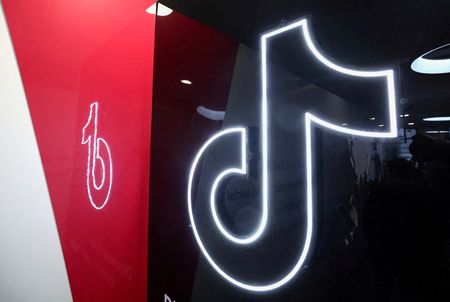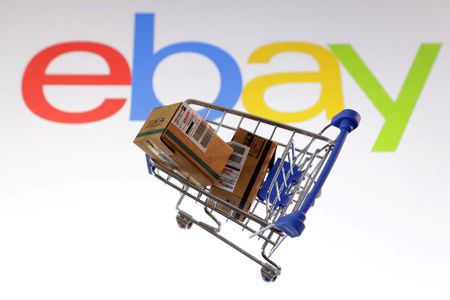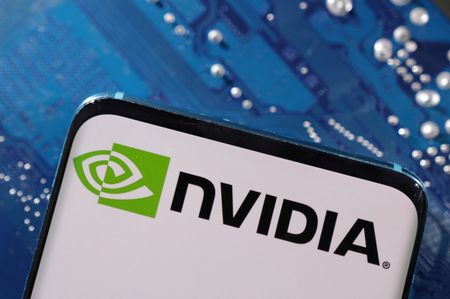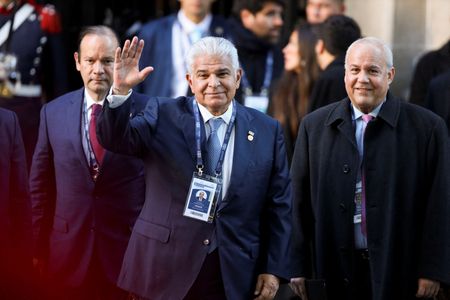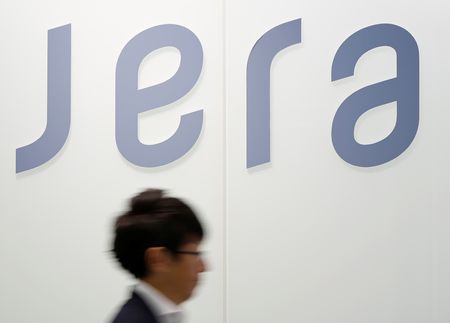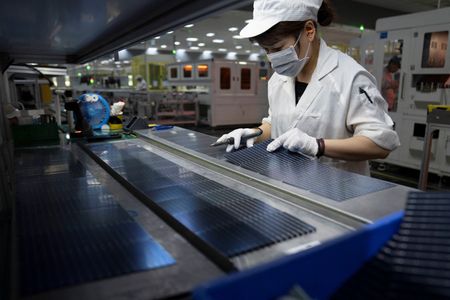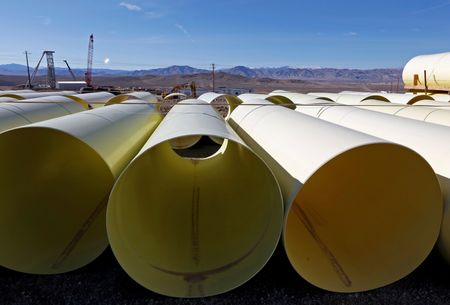By Jihoon Lee and Hyunjoo Jin
SEOUL (Reuters) -U.S. President Donald Trump said on Wednesday the U.S. would charge a 15% tariff on imports from South Korea as part of an agreement to avoid even higher levies.
The deal includes a South Korean investment of $350 billion in the U.S., but other non-tariff barriers, as well as security and foreign exchange issues, were left out.
AUTOS
The deal reduces U.S. tariffs on South Korean autos from 25% to 15%, the same rate as on Japan and the European Union.
Trump said South Korea would also accept American cars and trucks into its markets and without imposing duties on them.
South Korea already imposes zero tariffs on manufactured goods under a free trade agreement, according to the finance ministry.
Seoul said the countries would continue negotiations on safety regulations for auto imports from the U.S., a factor that Washington has cited as a non-tariff barrier.
STEEL, CHIPS AND PHARMACEUTICALS
The U.S. agreed that South Korean firms would not be put at a disadvantage compared with other countries over upcoming tariffs on chips and pharmaceutical products, while retaining 50% tariffs on steel and aluminium.
INVESTMENTS
Trump said South Korea would invest $350 billion in the United States in projects “owned and controlled by the United States” and selected by Trump.
South Korea said $150 billion has been earmarked for shipbuilding cooperation, while investments in chips, batteries, biotechnology and nuclear energy cooperation accounted for the remaining $200 billion.
Loans and guarantees would account for a majority of the fund, while direct investments would represent a small portion, South Korean officials said, adding there were also “safeguards”, such as purchase guarantees, under the plan.
Asked about fund details, South Korean presidential adviser Kim Yong-beom said the structures had not been specified and that “ambiguity is good”.
U.S. Commerce Secretary Howard Lutnick said 90% of profits from these investments would go to the American people, while Kim said he understood this as meaning “re-investment” in the U.S., not repatriated.
ENERGY PURCHASES
Trump said South Korea would purchase $100 billion worth of liquefied natural gas or other energy products, which the Asian country said would mean a slight shift in energy imports from the Middle East in the next four years.
In relation to a $44 billion Alaska gas project pushed by Trump, South Korean officials have expressed caution, citing the feasibility of the project.
AGRICULTURE
Trump said South Korea would accept American farm products into its markets without duties.
South Korea has already opened 99.7% of its market, with some 10 products left out as exceptions, such as politically sensitive rice, according to the presidential office.
Kim said there was no agreement to further open up the rice and beef markets.
South Korea, the world’s biggest buyer of U.S. beef, is already set to lower tariffs to zero by 2026 under the free trade pact, but restricts imports derived from animals older than 30 months, citing concerns over mad cow disease.
Still, the two countries agreed to continue negotiations over non-tariff barriers such as food safety control.
DIGITAL SERVICES
South Korea’s proposed legislation regulating online platform companies, which had been one of the most sensitive issues raised by the U.S. during working-level negotiations, was not addressed in the deal.
The government has a number of legislative proposals to regulate tech companies at home and abroad, such as Google, Facebook and South Korea’s Naver and Kakao, but the ruling Democratic Party put brakes on the process to smooth negotiations with the U.S.
Other non-tariff barriers cited in the U.S. foreign trade barriers report, such as restrictions on the export of location-based data, were not included in the deal either.
SECURITY
Trump has complained that South Korea should pay more for some 28,500 U.S. troops stationed in the country, but officials said security matters were not discussed in these negotiations.
Instead, they will be discussed at a summit between Trump and South Korean President Lee Jae Myung in coming weeks.
FOREIGN EXCHANGE
At the opening round of trade negotiations in late April, South Korea agreed with the U.S. to consult on currency policy via a separate channel between finance officials. The U.S. has accused some countries of keeping their currencies artificially low in order to boost their trade competitiveness.
The matter was not discussed for the deal, said Finance Minister Koo Yun-cheol, whose meeting with U.S. Treasury Secretary Scott Bessent scheduled for Thursday was cancelled after trade negotiations were concluded.
Still, consultations were ongoing separately from the deal, according to the ministry.
CHINA CURBS
There was no discussion about export or supply chain restrictions to curb China, such as penalty tariff rates for trans-shipments introduced in U.S. trade deals with Vietnam and Indonesia, South Korean Industry Minister Kim Jung-kwan said.
Earlier this year, South Korea stepped up investigations into foreign attempts to disguise foreign products as Korean exports, after it found breaches primarily from China.
(Reporting by Jihoon Lee and Hyunjoo Jin; Editing by Ed Davies and Stephen Coates)


